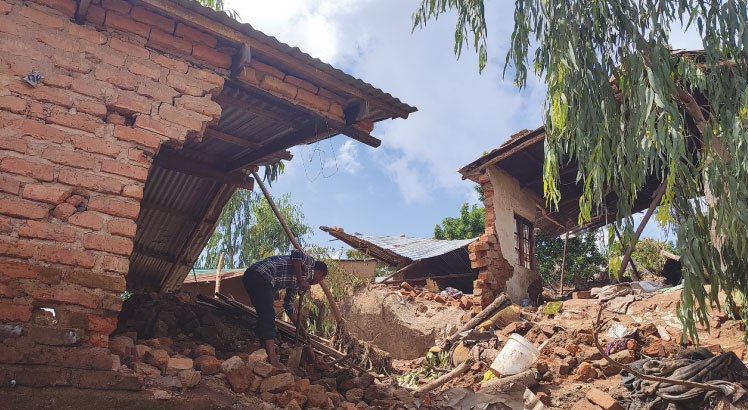IPI, IANRA call for review of mining policies
 The Institute for Policy Interaction (IPI) and the International Alliance on Natural Resources in Africa (IANRA) have teamed up in calling for a speedy review of the 1981 Malawi Mines and Mining Act to avert environmental degradation which is affecting local communities and the nation at large.
The Institute for Policy Interaction (IPI) and the International Alliance on Natural Resources in Africa (IANRA) have teamed up in calling for a speedy review of the 1981 Malawi Mines and Mining Act to avert environmental degradation which is affecting local communities and the nation at large.
This follows research by the two organisations that the burden of consequent rehabilitation after the mining period is left to governments instead of the operators.
In their research, both IPI and IANRA representatives say the current act deprives the entire Malawian population of basic benefits while at the same time exposes them to health and environmental risks, such as the purported radiation mainly at Kayelekera in Karonga, and deforestation.
Director of IANRA, Francis Ng’ambi, said this during a media workshop in Blantyre on Saturday on the state of mining in Malawi following frustration over the way the uranium mine licence was granted.
The licence was issued to Paladin Africa Resources Limited, a subsidiary of Paladin Resource Limited of Australia despite legal battles between civil society organisations (CSOs) who opposed the idea on health grounds and the Malawi Government, which highlighted the project’s monetary gains.
Ng’ambi said it is imperative that all agreements in the new act must have long-term environmental liability clauses to make mining companies responsible for any environmental degradation that may manifest at any time prior to, during its operations and post-closure.
“It is a globally recognised fact that environmental impacts often emerge long after the mines have closed down and moved on. The case of Acid Mine Drainage which is threatening the very existence of Johannesburg, South Africa, is a vivid example of this quandary,” said Ng’ambi.
He added that the new act and the national mining policy should provide detailed terms and conditions on how Malawi, as an agro-based economy, is to benefit the public.
“We want an act that will, besides issues of environment, also increase the current contribution of the minerals sector to the economy, from one percent to a targeted three percent of the Gross Domestic Product (GDP),” he said.
According to the World Bank and International Monetary Fund (IMF), the contribution of minerals to the country’s GDP since the opening of Kayelekera Uranium Mining three years ago is 10 percent.
For Nandin Patel, board chair of IPI, government should ensure that the new Mining Act, which is to replace the old one, reflects the drafted National Mining Policy currently with Cabinet.
“However, it is questionable if the outcome of the policy will be the same if the CSOs will be involved in coming up with the new Mines and Mineral Act, since we were not fully involved in drafting the policy,” wondered Patel.
She further said the Department of Mines should stop giving new mining licences to ensure that all reforms are completed for the law to be applied effectively, rather than having the legislation after much harm has been done.
“Every mining company should contribute to the mining trust which will be responsible for remediation after decommissioning,” said Patel, adding that environmental issues and fringe economic benefits should be clearly stated and agreed upon by the public and government.
The Ministry of Energy and Mining and other stakeholders are since examining what government decisions should be taken into account in the new draft policy before the review of the 1981 Act is done to achieve the additional three percent contribution to the GDP.





